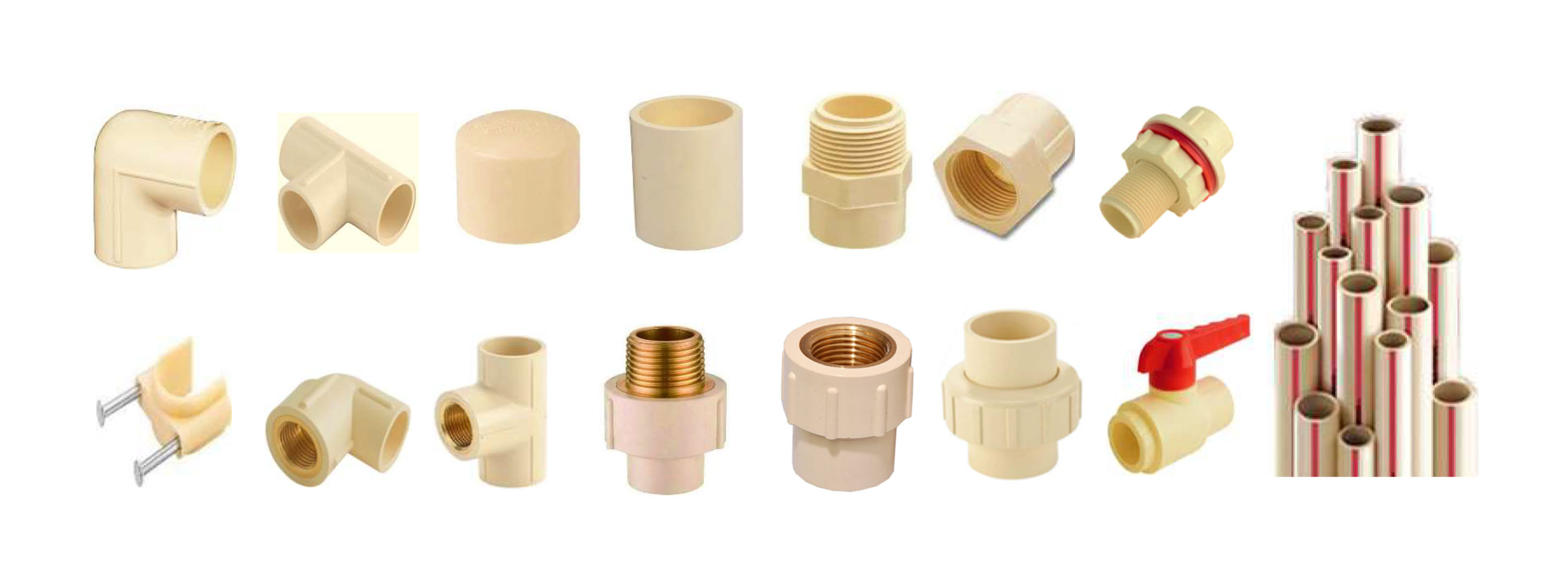
Chlorinated Polyvinyl Chloride (CPVC) is a thermoplastic produced by chlorinating polyvinyl chloride (PVC) resin. CPVC is particularly suited for hot and cold water distribution, and industrial liquid handling applications due to its exceptional chemical resistance, high-temperature tolerance, and long-term durability.

CPVC can handle temperatures up to 200°F (93°C), making it ideal for hot water plumbing systems. It outperforms other plastics like PVC, which can only withstand temperatures up to 140°F (60°C).
CPVC pipes and fittings are resistant to a wide range of chemicals, including acids, bases, salts, and aliphatic hydrocarbons. This makes them suitable for industrial applications where chemical exposure is a concern.
CPVC piping systems are known for their longevity. They are resistant to corrosion, scaling, and microbial growth, ensuring a long service life with minimal maintenance.
The smooth interior surface of CPVC pipes minimizes friction, allowing for higher flow rates and reduced energy consumption for pumping compared to metal pipes.
CPVC pipes and fittings are lightweight and easy to handle, making installation quick and straightforward. They can be joined using solvent cement, which creates strong, leak-free joints without the need for specialized tools or equipment.
Due to their durability and low maintenance requirements, CPVC piping systems offer excellent value over their lifespan. They are an economical choice for both residential and commercial plumbing projects.